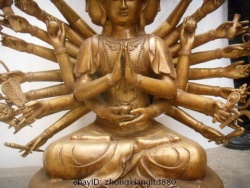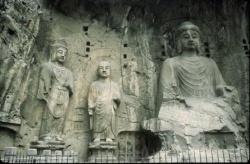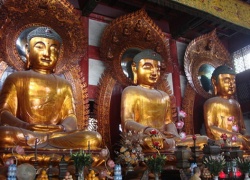Conditions In Violating Precepts
Five conditions of panatipata (Killing)
- 1. The being must be alive.
- 2. There must be the knowledge that it is a live being.
- 3. There must be an intention to cause death.
- 4. An act must be done to cause death.
- 5. There must be death, as the result of the said act.
If all the said five conditions are fulfilled, the first precept is violated.
Five conditions of Adinnadana (Stealing)
- 1. The property must be in the possession of another person.
- 2. There must be the knowledge that the property is in the possession of another person.
- 3. There must be an intention to steal.
- 4. There must be an act done to steal.
- 5. By that act the property must have been taken.
If all the said five conditions are fulfilled, the second precept is violated.
Four conditions to kamesumicchacara (Sexual Misconduct)
- 1. It must be a man or a woman with whom it is improper to have sexual intercourse.
- 2. There must be an intention to have such sexual misconduct with such man or woman.
- 3. There must be an act done to have such intercourse.
- 4. There must be enjoyment of the contact of the organs.
If all the said four conditions are fulfilled, the third precept is violated.
Four conditions of musavada (Telling lies)
- 1.The thing said must be untrue.
- 2. There must be an intention to deceive.
- 3.There must be an effort made as a result of the said intention.
- 4. The other must know the meaning of what is said.
If these conditions are fulfilled, the fourth precept is violated.
Three conditions of taking intoxicant
- 1. It is intoxicant.
- 2. There must be an intention to consume.
- 3. It is consumed.
If these conditions are fulfilled, the fifth precept is violated. However, taking intoxicant for medical purpose does not violate this precept.
The Ten Good Deeds 10 Good Deeds
- 1. Do not kill
- 2. Do not steal
- 3. Do not indulge in sexual misconduct
- 4. No lying
- 5. No double-tongued speech
- 6. No abusive speech
- 7. No irresponsible speech
- 8. No greed
- 9. No hatred
- 10. No delusion
The first three are the first three of Five Precepts; these are Body deeds. The last three are the Three Poisons, these are Mind deeds. The remaining four is an elaboration of the evil deeds performed by Speech. Body, speech and mind are the three means of actions.
Apart from avoiding the evil actions, one can take positive attitude in performing the good actions. The Ten Meritorious Deeds allow people to gain a happy and peaceful life as well as to develop knowledge and understanding. The Ten Meritorious Deeds are:
- 1. Charity
- 2. Morality / Taking Precepts
- 3. Mental cultivation / Meditation
- 4. Reverence or respect
- 5. Services in helping others
- 6. Transference of merits
- 7. Rejoicing in the merits of others
- 8. Preaching and teaching Dharma
- 9. Listening to the Dharma
- 10. Straightening one's own views
To fulfil all these requirements, one will be re-born in the Deva Realm. One will enjoy all kinds of happiness and blessings except the suffering of Five Forms of Decaying.
When the devas are dying, there are five symptoms:
- 1. the flowers around the crown
- 2. the clothes being dirty
- 3. having unpleasant smell in the body
- 4. sweating in armpit
- 5. Being unhappy in seat
Eight Precepts 8 Precepts
The Eight Precepts consist of the Five Precepts described above and three others, namely:
- 1. to refrain from taking food after midday;
- 2. to abstain from indulging in songs, dances, music and shows as well as the use of ornaments, perfumes and cosmetics;
- 3. to refrain from using a high or luxurious seat or bed.
The Eight Precepts are usually observed on new moon and full moon days. These precepts may be difficult for a lay Buddhist to follow. Therefore, their observance is entirely voluntary. Those who make the attempt are those who wish to experience the disciplined life of renunciation lived by member of the Order.
In observing the sixth precept, for example, the lay Buddhist eats one or two simple meals between dawn and noon and avoids taking food beyond that. This cuts down the time spent on meals and allows him more time to spend on mediation. As for the seventh precept, the lay Buddhist refrains from enjoying songs, dances, music and shows during this period of observance so that he will not be distracted by sensual pleasures that may give rise to unwholesome thoughts. At the same time, by refraining from the use of ornaments, perfumes and cosmetics, he becomes more aware that physical beauty is impermanent and that one should not be vain. By observing the eighth precept, the lay Buddhist experiences a simple way of life with the minimum of luxuries.
Observing the sixth, seventh and eighth precepts requires more effort on the lay Buddhist’s part because he has to restrain himself from indulging in the physical comforts and pleasures that he may be so accustomed to in everyday life. The purpose is to enable him to detach himself from all the distractions of normal activity in order to gain a better understanding of the real nature of life.



